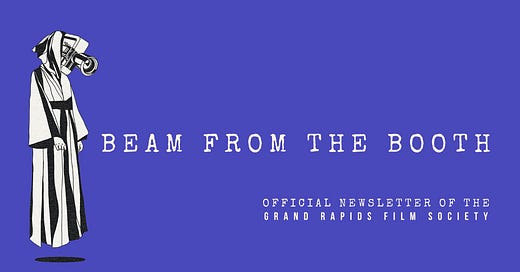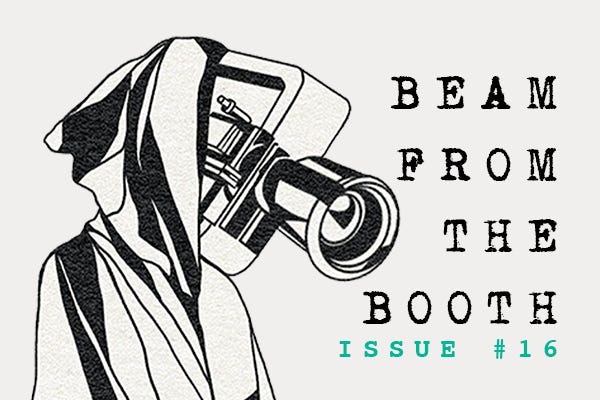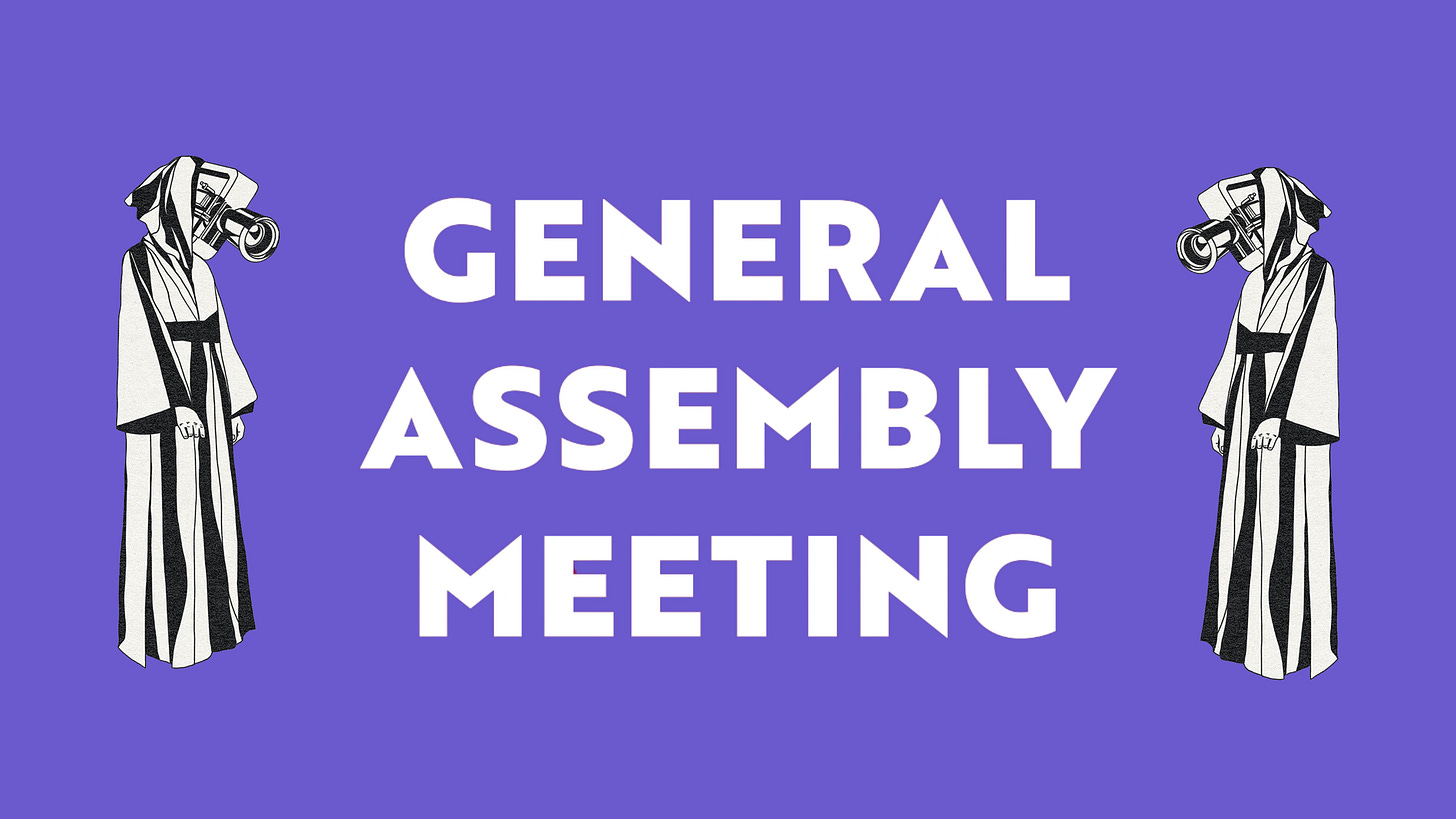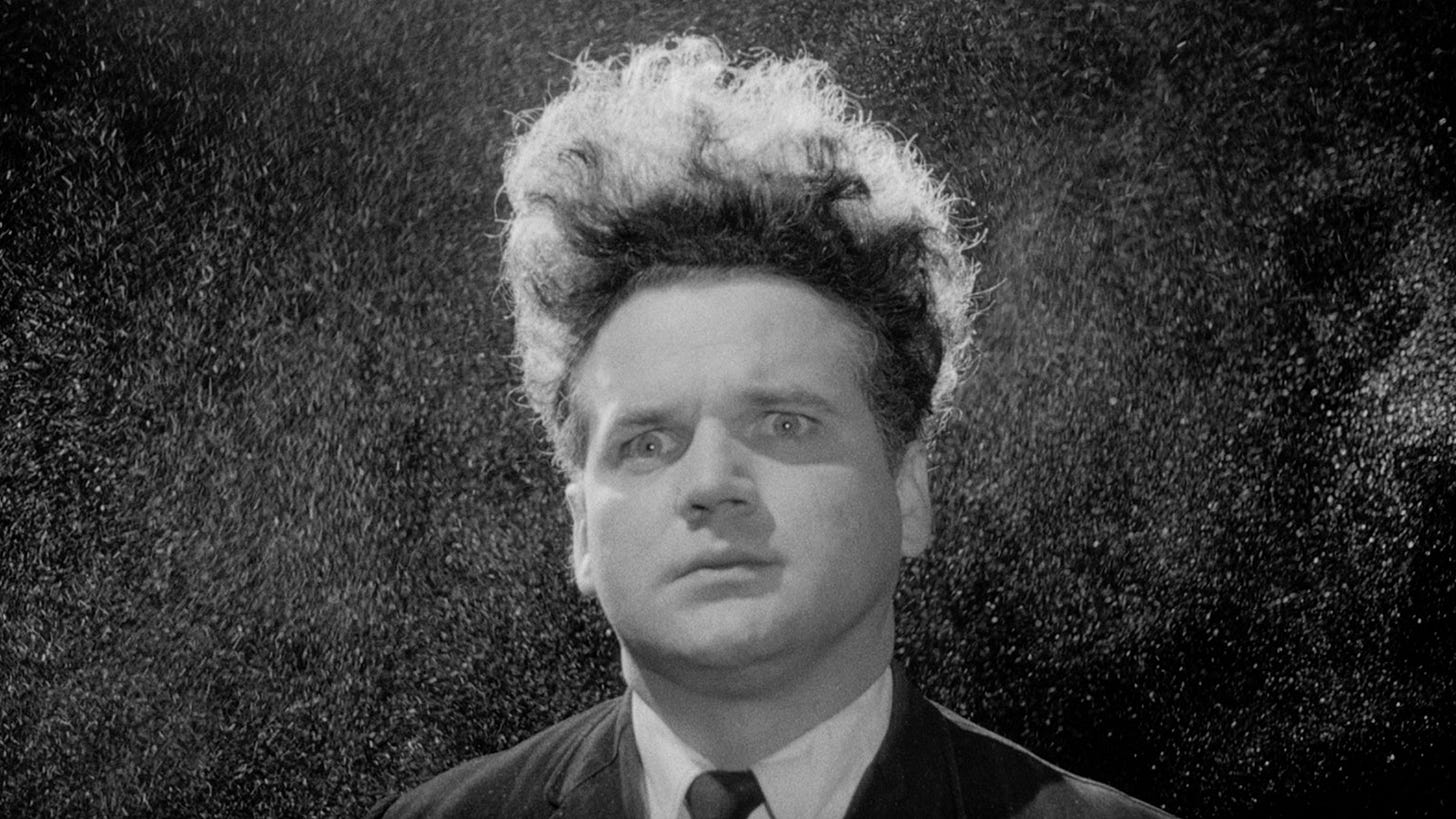[EDITED BY: GRIFFIN SHERIDAN & SPENCER EVERHART]
Hello and welcome back to an all-new installment of BEAM FROM THE BOOTH brought to you by GRAND RAPIDS FILM SOCIETY!
Back-to-back events this week kick off TONIGHT (3/24) at 8pm with our screening of Kelly Reichardt’s CERTAIN WOMEN.
We’re re-sharing a special Reichardt related piece from a previous issue further down in this installment.
Then, TOMORROW (3/25) at 6pm, we are excited to welcome you all to our annual GENERAL ASSEMBLY MEETING. We’ve been greatly looking forward to this special event that allows us to hear directly from the community we’re working to bring together. If you have any ideas for events or ways in which the GRFS committee can better serve the needs of the GR community, we highly encourage you to attend.
Also in this issue: Matt Everitt reflects on his recent experience regarding film festivals!
Check it out...
CERTAIN WOMEN: REVISIT OUR KELLY REICHARDT SYMPOSIUM
Ahead of our screening of Reichardt’s 2016 film tonight, we wanted to share one of our favorite features we’ve published to date: the Kelly Reichardt symposium.
All the way back in Issue #16, members of the GRFS committee shared thoughts on the individual films throughout Reichardt’s body of work. Certain Women was — of course — included. You can read that piece by Breana Malloy below, or check out the entire symposium at the link here:
***
CERTAIN WOMEN (2016)
My first time watching Certain Women was in January 2021. My recollection of the storyline was slim to none. So when I sat down to watch it this past weekend, I didn’t look at my Letterboxd review or talk to friends about it — I just sat down and pressed play. When comparing my first review and my recent experience, there was a vast difference in my understanding of the film. To me, Certain Women is a film I can watch in different moments of my own life and find new meaning in each viewing.
The first of the three tales follows Laura (Laura Dern), a lawyer, as she deals with a client who is unable to accept his case is dead. My first viewing showed me that she was brave and strong as she handled a tough situation. However, when I watched it recently, I saw that she wasn’t so different from her client: lonely, worn down, and lost. In my original viewing, I myself was looking for strength as a woman in a male-dominated field. I wanted to feel inspired by Laura, to get something from her. Now, I am not looking to take something from a character, but I actually see my own experiences in them. The feelings of loneliness and isolation that Laura and her client have are palpable. You see it all through body language and the words left unspoken.
After a scenic shot of the Montana landscape, we are introduced to Gina and Ryan (played by Michelle Williams and James LeGros), a married couple building their dream home. Three years ago, I saw a failing marriage. I felt that they were just complacent in their roles and would rather be unhappy together than be alone. Now I see the couple is in a rough patch. They are essentially trying to rebuild their lives. Originally, I saw the issues in the relationship and deemed it dead on arrival, but I now see a relationship that needs work but can still make it. I now know the work they must do — it is hard but not impossible.
The last of the stories follows Beth (Kristen Stewart), a lawyer teaching a night class, and Jamie (Lily Gladstone), a ranch hand who wanders into Beth’s class. Upon first viewing, I saw determination in Jamie and her pursuit of Beth. I didn’t think much about how, in the end, Beth rejects her. That very moment now shows me that it is just one more disappointment in Jamie’s life. She finally begins to stop suppressing her feelings, and her subtle pursuit pushes her right back down.
Although these are all personal observations, it is clear that Kelly Reichardt wrote a screenplay with such depth that there is always a new layer to unfold. She doesn’t shove a theme down your throat or tell the audience how to feel. She shows you a person, their relationships and their habits, and she lets you experience them. I truly believe that's why I can find vastly different meanings in the film only a few years later. I’ve grown as a person and the film grew with me because there is no one theme, meaning, or interpretation being forced on you. You sit with seemingly real people and simply see what you will in them.
— BREANA MALLOY
NOTES ON FILM FESTIVALS IN 2025
[BY: MATT EVERITT]
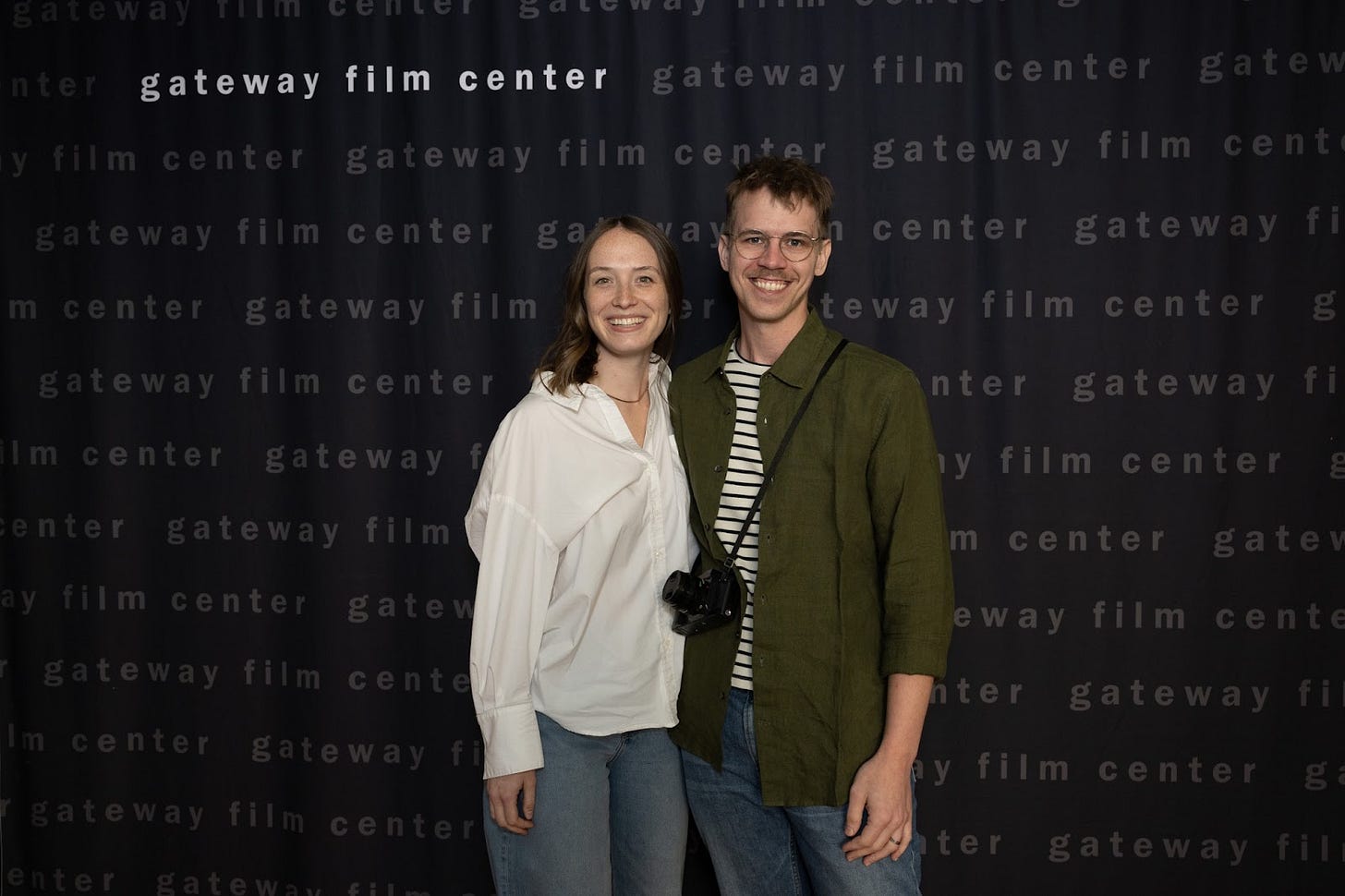
I’ve spent the past year on the festival circuit with our film, You Can Go Home Whenever You Want, and it was nothing like I hoped. It was better and worse in some ways, and I’d love to share because it turns out a lot of the dudes on YouTube (it’s always dudes) talking about festivals are using the prevailing wisdom from five years ago. If you know anything about the industry right now, you know nothing could be less helpful than pretending things are the same.
The industry is changing as fast as ever, so I wanted to share what it’s like these days running around the midwest with a film so that hopefully you’re able to strategize with more information for your own run around the circuit.
A note before I continue: we’re lucky to live in Grand Rapids where we have plenty of filmmakers with a wide variety of festival experiences and views on the whole process. These thoughts are just a piece of the puzzle. If anyone else wants to share what they’ve gained from the festival circuit, let us know; we’d love to share as many perspectives as we can fit.
Rejection always sucks, especially when you have to pay for it.

I just realized I got another rejection notice last night, and it only made me feel like shit for fourteen minutes. It used to be three days. Therapy is a huge part of that. But there’s no way around the cost of submitting. See those numbers up there? That’s about $1000 worth of submission fees. And a note on all the FilmFreeway advertising options and the people DM’ing for a discounted submission fee: if someone is asking you to submit your film to their festival, you should get a waiver for 100% of the fee — otherwise they’re just in the business of collecting submission fees. Also, fuck FilmFreeway for not policing scam festivals better. I always look for photos before I submit to see if a festival actually exists or if it’s three guys in a trench coat collecting submission fees.
Always go to the festival.
I usually second guess myself the night before a big drive to attend a new festival: What will this do for me? Who’s going to be there that can make a difference? Is this another festival that’s going to be screening in a room that’s not suited to screen a presentation, let alone a movie?
And, without fail, I’m always glad I attended. I always meet filmmakers whose work excites me and encourages me to keep going. The rest is just a bonus.
To put it bluntly: small audiences don’t mean small impact. One of my favorite screenings was for seven people; the Q&A was thoughtful and conversational and nothing has topped it since.
Remember, nobody has to show up to any of your screenings. But those who do show up do so because they want to be there. That’s pretty fucking cool.
Treat every opportunity with gratitude and every opportunity will be rewarding.
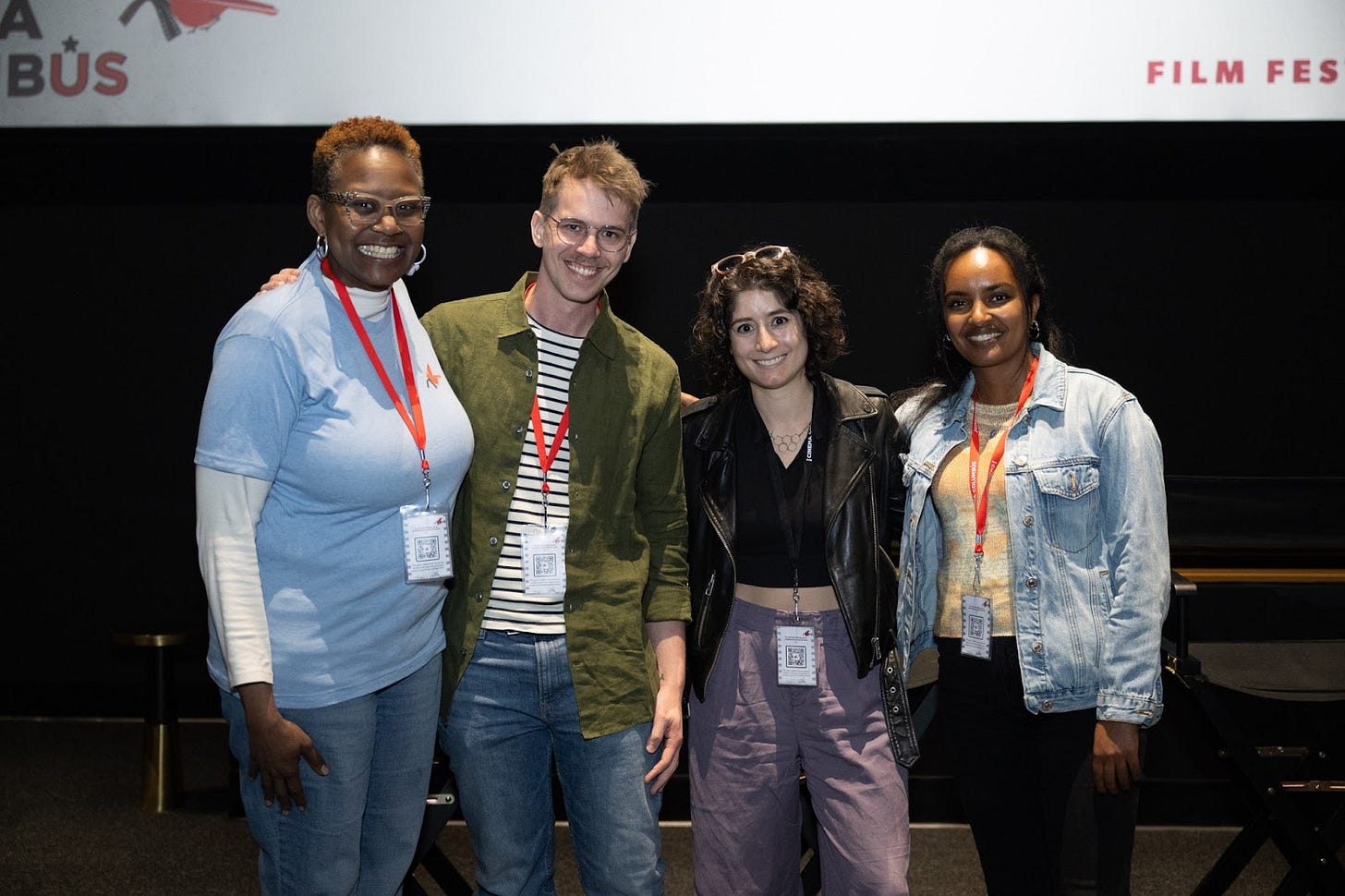
Not every festival will get your film, and you don’t want to get into every festival.
YCGHWYW won some awards at festivals I really respect. It also got shoehorned into offensively-titled shorts blocks at others. I’ve had programmers reach out and say very nice things about our film with superlatives that made me feel like I’m on the vanguard of a new cinema. I’ve had rejection notices get the name of our film wrong.
Every festival is programmed by humans, and every human’s taste is subjective.
I bring this up because — early on — it can be tough to stay true to your voice and vision in the face of so much rejection. Find the people who understand what you’re trying to do and can offer insight in ways to grow rather than just trying to make whatever you think will get you accepted.
We’ve been encouraged to play the game and to reverse engineer films that will get programmed at festivals, and there’s definitely wisdom in that advice. But at some point you can lose your voice, and I’ve seen films that were grown in a lab to hit all the key trends in festivals lately. To my annoyance, they’re doing very well. Those filmmakers will be working with much bigger budgets than I will be because of that. Should I play the game and engineer festival bait so that I can get a bigger budget to make something that truly inspires me? Probably, the industry these days is based on ‘one for them, one for me’ (maybe more like ‘three for them, maybe one for me if I can get an A-List cast with 534.8 million collective Instagram followers’). But that’s for me and my therapist!
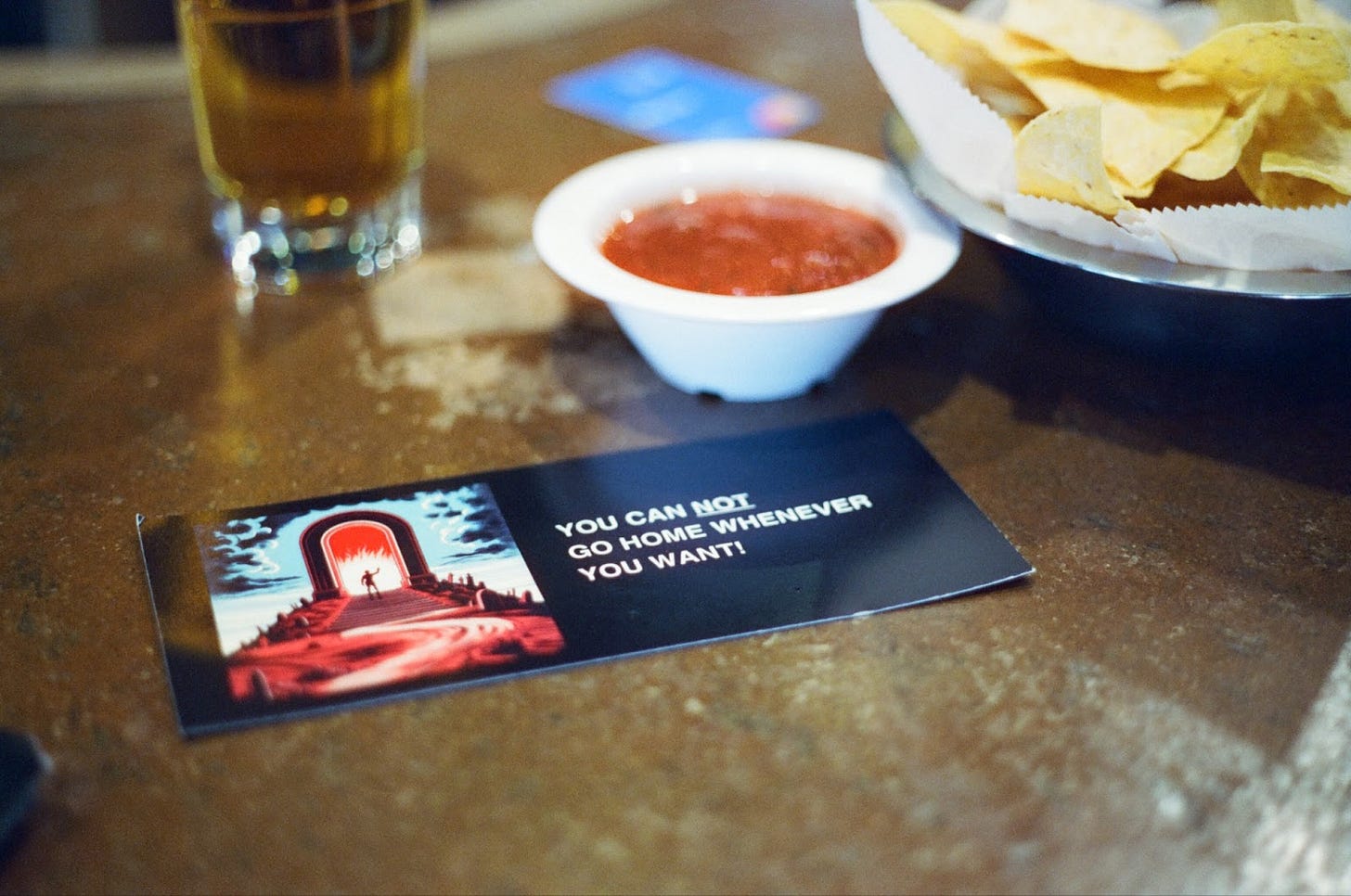
Everyone’s got a new app or streaming platform.
The amount of apps and platforms I was encouraged to list our short on was asinine. They all promised something alluring without guarantee: fundraising money, executives’ eyeballs, a potentially large streaming audience — basically anything any filmmaker could want!
Is the time it takes to get on their platform worth it? According to them, it is because you have the CHANCE at your dreams! Reality is different. The only apps that made any meaningful difference were the ones that let people stream your film as part of the virtual festival.
There are also some new regional streaming platforms popping up that I think might be worthwhile just because the more alternatives we have in streaming, the better our chances of escaping Netflix’s domination.
There’s a New Hierarchy.
There’s a hierarchy of festivals we all tend to follow: the top (at least for me) being Sundance, SXSW, TIFF, and Cannes.
Then you’ve got the regional powerhouses (there tends to be a little less consensus here): Hollyshorts, Tribeca, Cleveland, Austin, and Heartland.
My hypothesis is that everyone’s perception of this hierarchy is ruining festivals. There’s a similar tone and aesthetic to the majority of those festivals, and so things start to feel homogeneous. And if your film doesn’t fit that current trend then you’re out of luck.
That’s why I think the festivals like Fantastic Fest, FilmQuest, New/Next, and Cindependent are the most valuable for filmmakers who fall outside that norm. These festivals are supporting exciting films of all genres and giving adventurous voices a space to share their work. There are a lot more of these festivals than you might realize, especially in Ohio (?!?!).
Worthy note here: Open Projector Night has some of the best and biggest variety of programming I’ve come across yet.
Don’t lead with the big festivals; build up to them.
Here’s some vulnerability: I genuinely thought I’d make something so good that I’d get into Sundance, wow the audiences there, and leave with funding for my first feature. That was my whole plan.
Here’s the reality: that never happens. Even when it looks like it does. The film industry has a horrible habit of encouraging the belief that someone’s work alone will get them to the next level. Everyone tends to leave out that they met someone years ago who connected them to someone else who connected to someone who now works at HBO or Neon or is a programmer at TIFF.
Trust me: the rate of people you think got into Sundance through simply submitting to FilmFreeway is significantly lower than you want to realize.
But that’s where your trustworthy regional festivals come in. Meet everyone and encourage all the filmmakers you meet. Build a name for yourself and your film from the ground up. Go there even when you’re not screening.
I can say from experience that some attention at these festivals creates a Fear Of Missing Out effect, and people get curious. I’ve spoken with a good amount of filmmakers that have used regional recognition to directly leapfrog into a festival on par with Sundance and Cannes. Use that to your advantage so that when you do submit to the bigger festivals, you have something to show for it on your FilmFreeway page.
Fill out your whole FilmFreeway page.
Programmers will look at your profile when they don’t know who you are. It’s your job to convince them in a few moments that you’re serious about what you do and that your movie is worth their time. If you don’t take your film seriously enough to share the basic information about your film, programmers won’t take your film seriously enough to book it. And update it as you get screenings and any awards you receive; seeing that other people love your film is a good way to set the stage in the programmer’s mind that they’re about to watch something good. I put together a video a few months ago on what exactly programmers see when they see your FF listing if you want to see more.
I’m glad my movie didn’t blow up.
The worst thing that could have happened to me is that YCGHWYW got into Sundance. It would have confirmed my belief that I did it; that I can do it again; that I alone control the future of my films.
Instead, I got something even better: a deeper love of filmmaking and richer participation in a beautiful community that reaches across the country. For the first time in my life, I can finally say I love the process of filmmaking more than the accolades I’ve always imagined getting from my work.
Somewhere along the way, something switched in my head: I stopped looking at the festivals as the arbiter of my success and found it in the filmmakers I met. I saw such incredible films at all these festivals, and it turns out the filmmakers behind the ones I loved the most usually loved my film in the same way. I’d have two or three follow-up calls after every festival.

The night we won Best Drama Short at Cindependent, I was convinced there was an error because a film called Cottage Grove was obviously superior to ours. That filmmaker, George Elzey Jr., is now a close friend and has encouraged me in ways other filmmakers haven’t been able to before. I’m a better filmmaker now not because of the recognition, but because I’ve found people who understand my work, the process, how insane it is to do what we do, and can speak to it better than I can sometimes.
As those new relationships grew, my relationships here in Grand Rapids got even deeper. I recognized how special our community is and how rare it actually is. The amount of people who were jealous of Pitch Night or Rough Cut Night surprised me until I realized not every city has a place like Wealthy Theatre or an organization like GRCMC that has embraced the filmmaking community like they have.
To Wrap it All Up
I’ve learned so much on the festival circuit this year, and I’m so grateful to have been part of a film that resonates with as many people as it has. What’s even better is that I’m more in love with the process than I’ve ever been. For all the shit, and thousands of miles on the road, and rejection — I wouldn’t trade any of it because I’ve met the coolest people in the world and have seen films that have changed me.
But talking about film festivals has never felt more delusional. For anyone who’s feeling like the barrage of shit is pulling you under: you’re not alone. We’re in for some dark fucking times ahead.
However, the hope and joy I feel when I experience new work and talk with filmmakers who make incredible art has been a beacon in the night. This community will be a huge part of how I work to maintain my humanity.
If I could sum up everything I’ve learned at festivals this year, it’d actually be decent life advice: nothing matters as much as the community you invest in. Be active, listen, show up, fuck up, learn, try again, and you’ll only lose if you give up.
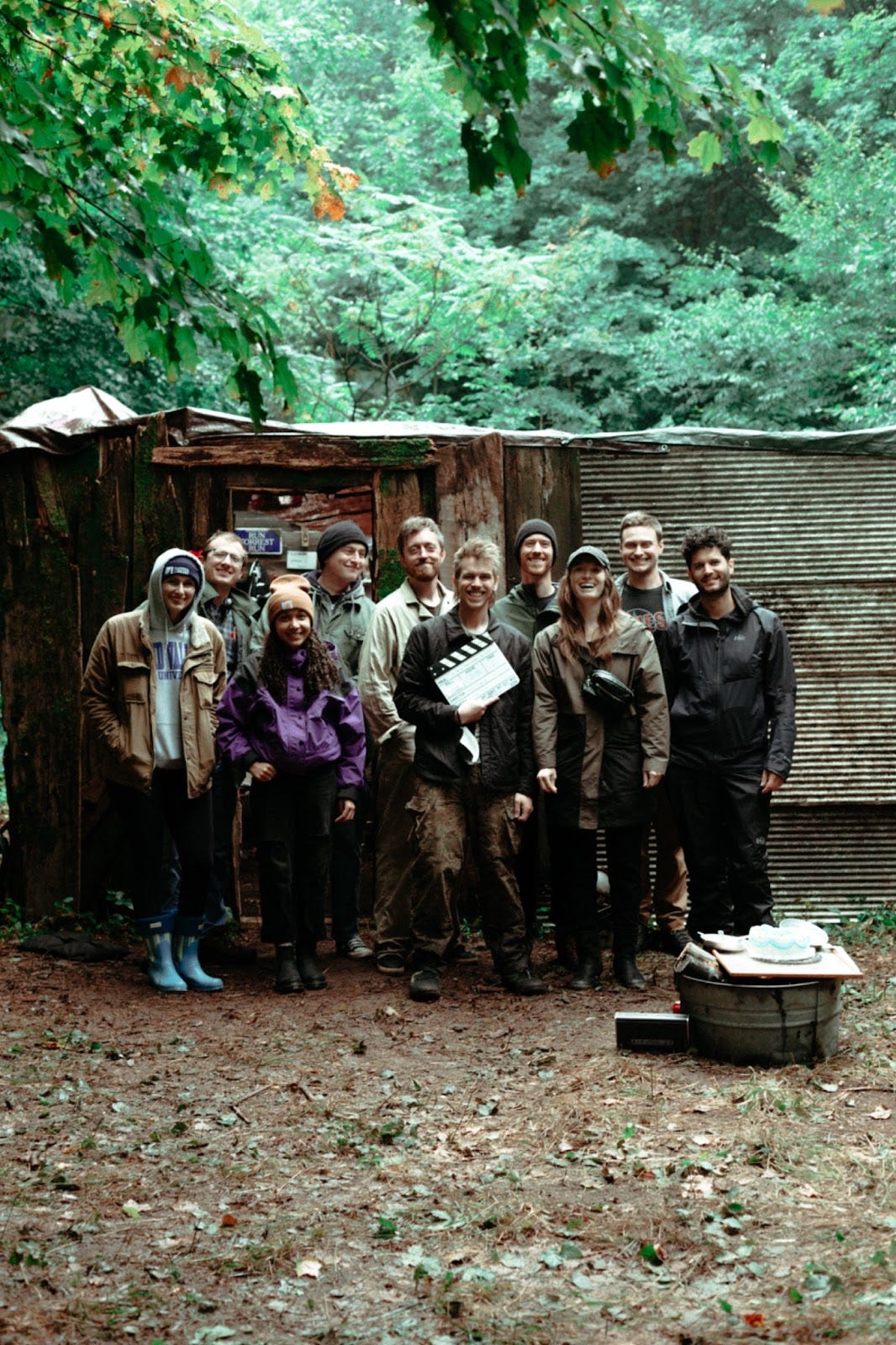
You Can Go Home Whenever You Want is now streaming on YouTube here:
UPCOMING EVENTS
CERTAIN WOMEN (Reichardt, 2016)
WHAT: Three strong-willed women (Kristen Stewart, Laura Dern, Michelle Williams) strive to forge their own paths amidst the wide-open plains of the American Northwest: a lawyer who finds herself contending with both office sexism and a hostage situation; a wife and mother whose determination to build her dream home puts her at odds with the men in her life; and a young law student who forms an ambiguous bond with a lonely ranch hand.
WHEN: Monday, March 24th, 8:00pm
WHERE: The Wealthy Theatre
2025 GRFS GENERAL ASSEMBLY MEETING
WHAT: The Grand Rapids Film Society wants to hear from YOU! Do you have an idea for us? Do you have recommendations and critiques? Are you interested in volunteering at our events, etc.? If so, please join us!
WHEN: Tuesday, March 25th, 6:00pm
WHERE: Dirk Koning Micro Cinema at The Wealthy Theatre
ERASERHEAD (Lynch, 1977)
WHAT: Part of THE MAN FROM ANOTHER PLACE: A DAVID LYNCH RETROSPECTIVE. In Lynch’s feature debut, Henry resides alone in a bleak apartment surrounded by industrial gloom. He discovers that an earlier fling left a woman pregnant, he marries the expectant mother and has her move in with him. Things take a decidedly strange turn when the couple's baby turns out to be a bizarre lizard-like creature that won't stop wailing.
WHEN: Monday, March 31st, 8:00pm
WHERE: The Wealthy Theatre
And so we’ve arrived at the end of another BEAM FROM THE BOOTH! We appreciate you taking the time to read it and truly hope you’ll continue to do so. Be sure to SUBSCRIBE to get each issue in your inbox every week, and stay up-to-date on all things GRFS.
Plus, join us on social media! We’d love to chat with everyone and hear YOUR OWN thoughts on everything above (you can also hop in the comments section below).
Know someone you think will dig BEAM FROM THE BOOTH? Send them our way!
Look for ISSUE #95 in your inbox NEXT WEEK!
Until then, friends...

